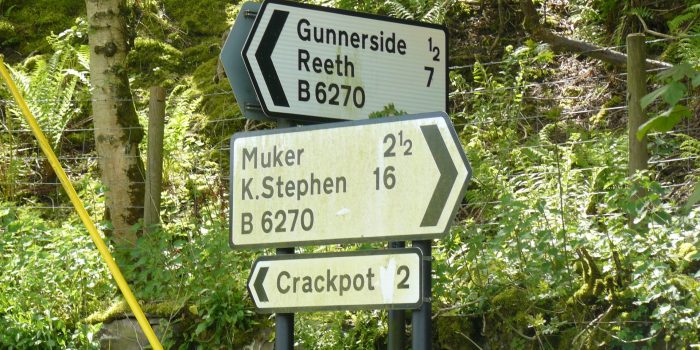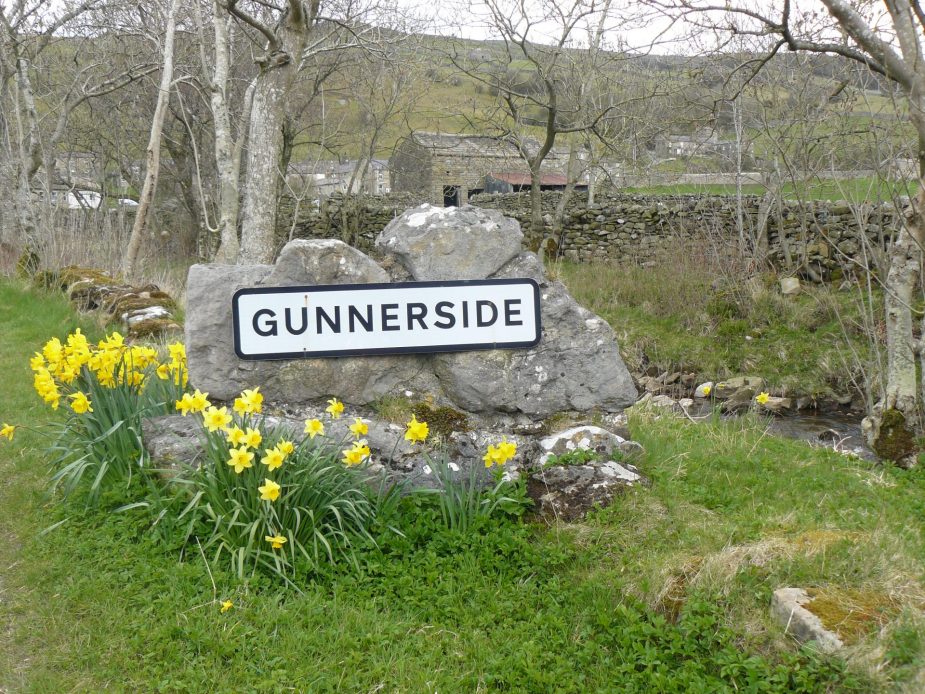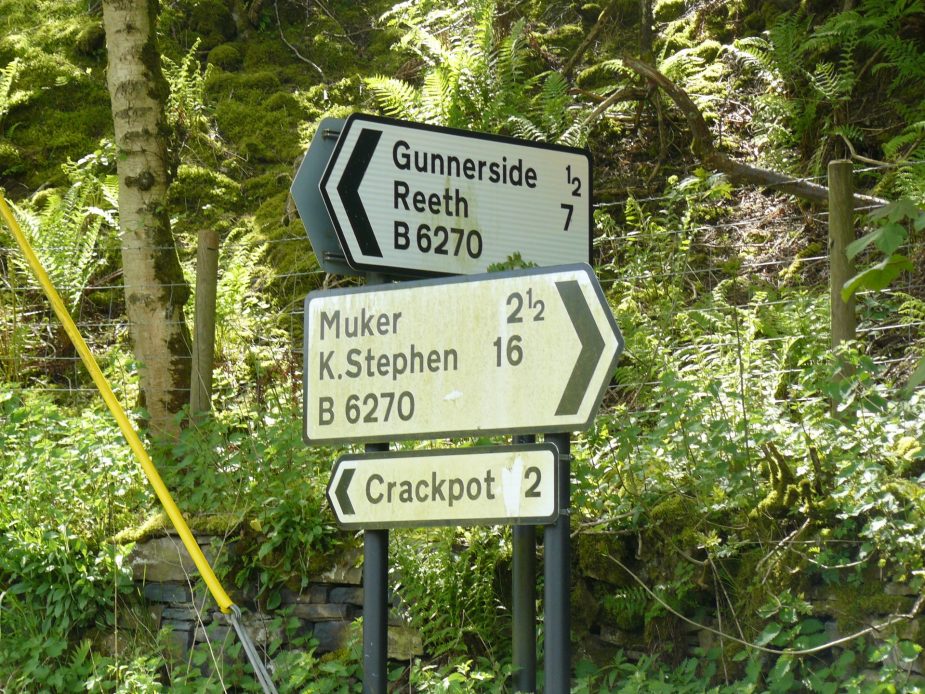When driving around our local area, researching places to visit or browsing our cottages on our website, you might come across some strange place names and wonder where they came from. Not only is our local dialect filled with confusing and archaic language, but our local area is also filled will unusual and long-standing place names too, originating back to the 5th Century!
We’ve done some digging to find out a little bit more about the names of our local towns and villages, so when you next visit us and you’re driving through, you’ll know where the name originated from and be able to impress people with your local knowledge!
Gunnerside
Meaning: Gunnar’s shieling
Origin: Old Norse (from 9th century)
The name Gunnerside originates from the name Gunnar, a family or personal name, while sheiling means hut on a high pasture or hill, – so in essence, Gunnerside was the hill where the Gunnar household resided. The now village of Gunnerside is where most of our cottages are situated, being home to over ten of them, including Briar Mede, Bridge View Cottage, and Farmendon.
Reeth
Meaning: The place by the stream
Origin: Old English (from 5th century)
The people of the 5th century were oh so creative when it came to naming their settlements, with Reeth being appropriately named ‘the place by the stream’ since it sits just above the River Swale and alongside Arkle Beck! A common theme that you’ll see start to develop when looking into our local place names, is that when naming places, settlers truly said it as is it, with very simple and self-explanatory names! Reeth is a lovely village in Swaledale with wonderful views of and walks along the River Swale, and is home to one of our cottages, Glenkobla.
The River Swale
Meaning: Rushing Water (Swalwe)
Origin: Anglo Saxon/Old English (from 5th century)
Originating from the Anglo-Saxon swalwe, meaning ‘rushing water’ or sualuae meaning ‘rapid and liable to deluge’. The River Swale lives up to its name, as it has a reputation for being one of the fastest rising flood rivers in England!
Crackpot
Meaning: The crevice where crows nest
Origin: Old Norse (from 9th century) Middle English (from 12th-15th century)
Crackpot’s name is derived from the Old English kraka, meaning ‘a crow’, and the Viking word pot which would usually refer to a cavity or deep hole often in the bed of a river. But in Crackpot’s case, it refers to a rift in the limestone that Yorkshire is well known for. One of the largest areas of limestone in the UK is found on the other side of the Yorkshire Dales National Park to our cottages, near Malham and Ingleton!
Booze
Meaning: The house on the curve of the hill
Origin: Old English (from 5th century)
This is one of our more unusual names, especially when you consider its more modern meaning! In this case though, the hamlet of Booze up in Arkengarthdale has no connections to alcohol, liquor or getting drunk – especially as there is no pub there! Instead, it refers to the location and situation of the tiny settlement.
Muker
(pronounced mewker)
Meaning: A narrow newly cultivated plot
Origin: Old Norse (from 9th century)
Home to two of our cottages – The Rash and Low Rigg – Muker derives from the Old Scandinavian meaning ’A narrow newly cultivated plot’, with the name aptly following their settlement there. Due to its location at the meeting of the River Swale and the Straw Beck and the surrounding meadowland, it would’ve been the perfect sport for the Norse to settle with the opportunity to make a living out of farming the area.
Hawes
Meaning: The mountain pass
Origin: Old Norse (from 9th century)
Another aptly named town, Hawes means ‘the mountain pass’ – a way through, or to, the mountains – in this case the hills surrounding the town. Hawes is England’s highest market town and stands between two of the highest roads, the stunning Buttertubs and Fleet Moss. The quirky market town of Hawes is home to the Wensleydale Creamery, the Dales Countryside Museum, and of course, Scott Cottage!
All across the Dales, there are so many towns, villages and little hamlets dotted around that there are so many names that we could look into the history of – so we hope we’ve given a little insight into the history and origin of our local area. We must say though, that the best way to explore the past and heritage of the Dales is to pay us a visit yourselves! Whether you wander the sights yourself or pop into our local museums to learn more, there’s no better way to learn than seeing it for yourself. Why not book a stay with us to discover more about the interesting history of our local area?


